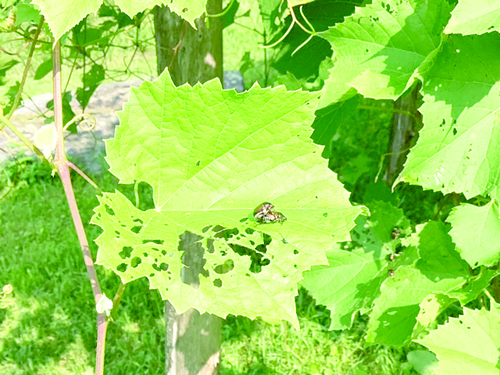Earth Notes: Memo to the future

By Cynthia Stancioff
Guest Columnist
I recently listened to a radio piece in which people from various walks of life were asked what one sentence they would leave for a future civilization if ours were to vanish.
One person felt it would be most important to leave a message about racism; someone else suggested that awareness of mortality should be encouraged. Another guy claimed he would leave no advice at all, because any one suggestion that was bestowed upon a future society risked being over-emphasized and distorted, perhaps leading to useless or counter-productive activities.
If someone asked me, I’d say, “Revere Nature.” I don’t think you can overstate this.
I’m sort of assuming the creatures who receive this message will have gone through the whole long process of evolving along with other species over eons, and as a result will be, like we are, dependent on a certain set of environmental conditions to maintain a stable planet. I’m also assuming that we’ll be sending the message because we’ve disappeared due to ecological collapse rather than nuclear war or a surprise asteroid. But even if I’m wrong, I think the advice still holds.
It isn’t enough to say “Appreciate Nature.” We can’t fully appreciate what we can’t understand, and there isn’t anyone who fully understands the way the Earth’s biome operates. Nature is a complex web of amazing interactions beyond comprehension. The more you know about it, the more you realize how little you know.
Some who have been lucky enough to have had a reasonably good science education do grasp that Nature has painstakingly evolved a working system that is ingeniously adaptable within certain ranges of environmental conditions that occur periodically over the course of geologic time. They also understand that the abrupt CO2 increase in the atmosphere in the last 200 years is unprecedented in the experience of almost all current life forms.
Others who haven’t had the means or opportunity to learn the basics of the sciences might appreciate a nice day at the beach, a mountain view, a field of wildflowers, but remain unmoved by warnings that the atmosphere has warmed 2 degrees Fahrenheit: “A shorter winter, what’s wrong with that?”
Actually, we’re beginning to see what’s wrong with that — drying of forests, uncontrollable wildfires, deadly heat waves, warming of oceans; new pests and diseases of plants, trees, people, animals; unprecedented phenomena of all kinds. In short, things are out of control, and there is probably no way to reverse them — we can only do our best to slow them down, but all bets are off.
And how did we get here? Through reverence for the Earth’s wisdom? Not so much! It seems we got here through “intelligence!” We were smart enough to learn how to forge metals into tools with which we conquered the wilderness and each other. We found ways to extract and use and profit from Nature. We conquered all the cultures who had reverential relationships with their environment, claiming they were inferior.
After hunting whales to near extinction for oil to light our lamps, weary of cutting peat and trees to heat our homes, we stumbled upon extracting fossil fuels, upon which we quickly became reliant. New technologies bred a change in lifestyle so big that reliance became addiction, and addiction led to tyranny.
We conquerors considered our conquering of Nature to be superior to the “primitive” cultures that lived with reverence for their environment. But really, our understanding of Nature and science advanced just enough to serve our immediate desires, while our understanding of the big picture lagged far behind. The “primitives” who had lived for 30,000 years on the planet without wrecking it may have had less understanding, but they did have reverence for everything around them.
Thinking we understand Nature, we clearly haven’t appreciated it. What we’ve missed is a million times more than what we’ve learned. For all our advances, apparently there isn’t yet even one single-celled organism that scientists fully understand. But somehow, we have inserted plastic into every creature and plant and fungus and embryo, and warmed the oceans. What?
Seems to me none of this would have happened if we’d had the right attitude: reverence. It’s an acknowledgement that something is too big to understand and must be respected, valued, protected, even feared.
Too bad we didn’t get that memo!
Cynthia Stancioff wanders and writes in Chesterville, Maine. She invites communication at cynthia.hoeh@gmail.com.

